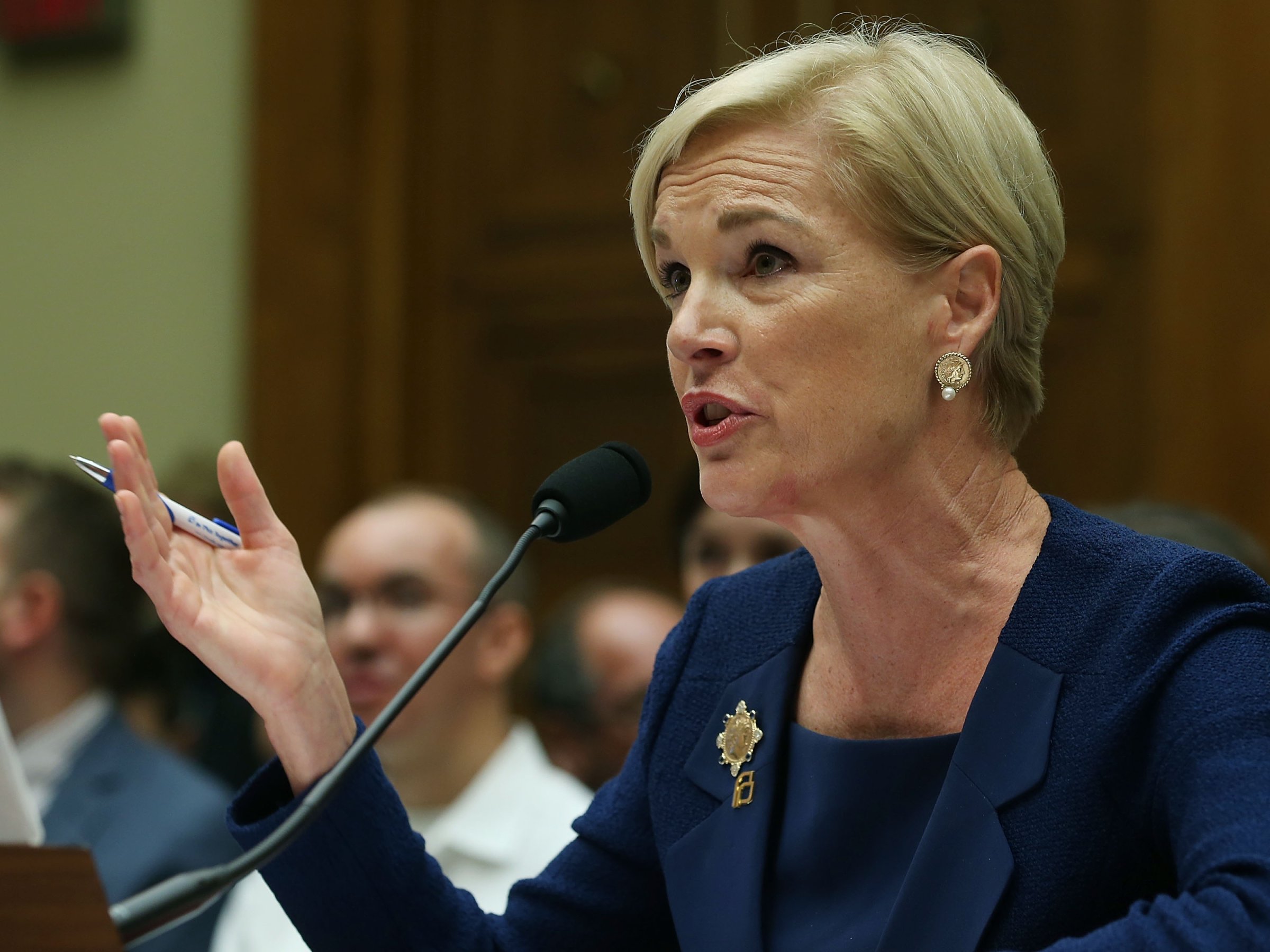
Planned Parenthood president Cecile Richards said this week that the organization will no longer accept reimbursements for expenses related to donated fetal tissue — which is obtained from abortions — for research purposes. Critics of the organization and conservative members of Congress immediately declared victory. After months of undercover videos showing members of Planned Parenthood involved in the handling of fetal tissue — which is legal and used in scientific research — here was a sign that the maneuvers by anti-abortion activists had succeeded in shocking the public into moral outrage over the organization’s practice of “paying” for human parts.
“It is curious that, while Planned Parenthood officials maintain there has been no wrongdoing, they still find it necessary to change their policy,” Republican Tennessee Representative Diane Black said in a statement responding to the decision.
But in fact, this represents the group’s checkmate. Because it isn’t about the money — it never was. While Planned Parenthood won’t provide specific figures for how much it’s giving up in fees, the group maintains it’s a small number. Officials would only say it accounted for one-tenth of a percent of the annual budget at one of their facilities involved in fetal-tissue donation. (The affiliates would list the fees as costs incurred and then get reimbursed, but a Planned Parenthood spokesperson declined to provide a figure for whether this involves hundreds, thousands or tens of thousands of dollars.)
MORE: Why We Still Need Fetal-Tissue Research
With Planned Parenthood facilities now being targeted for arson and Congress launching several investigations — all amid calls to defund the group of its $528 million in federal funding, Planned Parenthood is punching back with a decision that is squarely on the side of science.
None of the fees Planned Parenthood collected appear to be illegal. Federal law permits entities to provide fetal tissue for research purposes and to charge minimal expenses for storing and distributing the tissue properly. The same goes for cadavers used in medical school for educational purposes. Nothing in the videos indicated that Planned Parenthood received anything beyond these fees, or that it made a profit.
Now the group is eating those costs, swallowing whole any remaining arguments on this issue that conservatives or anti-abortion advocates may have.
MORE: Most Americans Oppose Government Shutdown for Planned Parenthood Fight, Poll Says
“This allows us to pull the rug out from under these false and misleading charges that are being used to attack something really fundamental, which is women’s access to safe and legal abortions in this country, and used to destroy the health care provided to millions of women by Planned Parenthood,” says Dawn Laguens, executive vice president for Planned Parenthood Federation of America, echoing Richards arguments in a letter to the National Institutes of Health.
Bring it on, Richards seems to be saying. If you want to come at us for the legally allowed reimbursements, then we’ll get rid of those charges.
Granted, the fees that each affiliate involved in fetal-tissue donation will now have to absorb aren’t exorbitant — in one undercover video, the Planned Parenthood member says it charges anywhere from $30 to $100 per specimen — and only two affiliates, in Washington and California, currently have agreements for providing fetal tissue. (Of the group’s 700 facilities, about a half-dozen did, but some research projects have ended while a few have decided in recent months to stop their donation programs out of safety concerns in the wake of the controversy.)
MORE: Meet the Man Behind the Planned Parenthood Videos
Money was never the reason Planned Parenthood worked with scientists to deliver fetal tissue for research.
Planned Parenthood’s Washington affiliate had never charged these fees since it began its donation program. It was about the research, and honoring the intentions of women willing to donate the fetal tissue in an effort to help scientists learn more about untreatable diseases and potentially help others. Ironically, Laguens says that since the well-publicized secret videos, more women are asking about fetal-tissue donation and eager to participate, even at facilities where there are no programs set up.
Without the fees, anti-abortion activists are left to look for another way to target the group for its abortion services. And those attacks will come, as they have since the group opened its first facility in New York in 1916. But they won’t be built around the argument that Planned Parenthood takes money for body parts. Because it doesn’t anymore.
More Must-Reads from TIME
- Cybersecurity Experts Are Sounding the Alarm on DOGE
- Meet the 2025 Women of the Year
- The Harsh Truth About Disability Inclusion
- Why Do More Young Adults Have Cancer?
- Colman Domingo Leads With Radical Love
- How to Get Better at Doing Things Alone
- Michelle Zauner Stares Down the Darkness
Contact us at letters@time.com